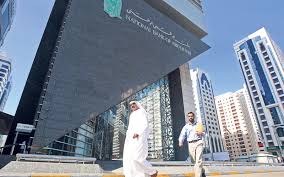 National Bank of Abu Dhabi (NBAD) PJSC and First Gulf Bank (FGB) PJSC said they’re in talks to merge in a deal that would create the largest lender by assets in West Asia.
National Bank of Abu Dhabi (NBAD) PJSC and First Gulf Bank (FGB) PJSC said they’re in talks to merge in a deal that would create the largest lender by assets in West Asia.
A working group of senior executives from each bank is reviewing the commercial, structural and legal aspects of a potential transaction, according to a filing to the Abu Dhabi stock exchange on Sunday. Bloomberg News was first to report the two banks were considering a potential merger on June 16.
A deal would create a lender with assets of about $170 billion and mark the first major banking merger in the United Arab Emirates’ since National Bank of Dubai and Emirates Bank International combined to create Emirates NBD PJSC in 2007. The country’s fragmented banking industry is ready for further consolidation and a deal could prompt further mergers among lenders, according to investment bank EFG-Hermes Holding SAE.
“There’s no doubt it will lead to synergies and would give them a competitive edge, considering there are more than 40 banks in the UAE,” Chiradeep Ghosh, a banks’ analyst at Securities & Investment Co in Bahrain, said by phone on Sunday. “The combined entity will have a bigger equity book. That will help them to lend to larger entities and take up a greater share of the syndicated loan book.”
First Gulf Bank could pay a premium of as much as 14 per cent to buy National Bank of Abu Dhabi, Arqaam Capital Ltd said in a note to investors on Thursday. NBAD shares surged 15 per cent on Sunday, the maximum allowed in a day, to 9.2 dirhams as of 10:52 am local time. First Gulf Bank also soared, rising 7.8 per cent to 12.7 dirhams. NBAD is the UAE’s second-biggest bank by assets, while FGB is third-ranked.
A combination would help them overtake Emirates NBD as the country’s largest lender and represent nearly a quarter of the system’s loans and deposits, according to EFG-Hermes.
The UAE is home to about 9 million people and has about 50 banks, including the local units of Citigroup Inc, HSBC Holdings Plc and Standard Chartered Plc. Both NBAD and FGB have pushed to expand in other countries to beat the limitations of a small home market and build investment banking businesses to compete with bigger foreign rivals.
NBAD was the fifth-biggest arranger of syndicated loans in the six-nation Gulf Cooperation Council last year, while FGB ranked seventh, according to data compiled by Bloomberg. NBAD was also the second-largest arranger of bonds and sukuk sales last year.
The league tables are dominated by foreign lenders including HSBC Holdings Plc, Citigroup Inc and Sumitomo Mitsui.
NBAD, with a market value of about $11.3 billion at the end of Thursday, is 69 per cent owned by sovereign wealth fund Abu Dhabi Investment Council. State-owned investment fund Mubadala Development is the biggest shareholder in FGB, whose market capitalization is $14.4 billion, according to data compiled by Bloomberg.
The news “was a surprise considering, they have a very contrasting style of management and business strategy,” Ghosh at SICO said. “One is a public-sector focused bank, while FGB is an aggressive private sector bank, with reasonable focus in consumer lending. FGB primarily operates within the UAE, while NBAD is looking to expand outside the UAE.”